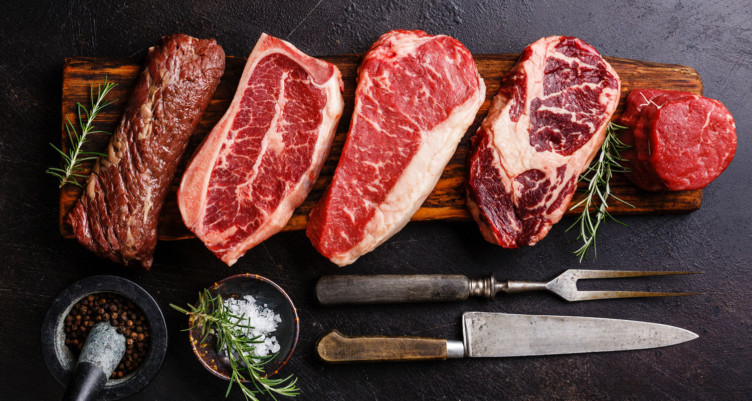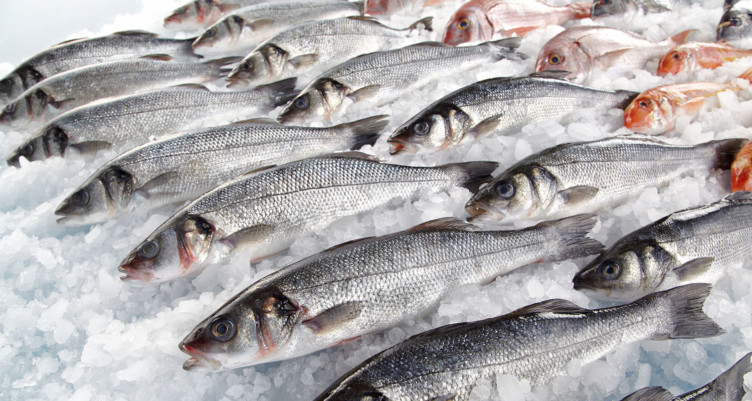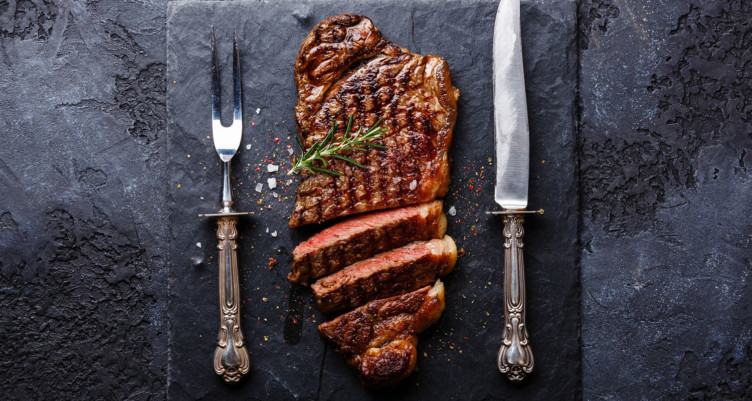The Carnivore Diet: Is the Zero-Carb Diet Really Effective?

- The carnivore diet is a meat-lover’s dream. You eat only animal foods when you’re hungry, and you stop when you’re full. That’s it.
- There are thriving online communities packed with anecdotal evidence in favor of the zero-carb diet. Health experts are divided on the topic. There are currently no long-term studies in support of carnivory.
- You can benefit from low-carb, high-fat diets (without going full carnivore). Try keto and keto-type diets, which limit inflammatory sources like grains and heavily processed foods.
Picture this: For breakfast, you dig into a pile of bacon. When lunch hits, you chow down on a sizzling sirloin steak. And when it’s time for dinner, you grill up a few classic beef burgers — hold the cheese. And the buns. And the veggies.
The carnivore diet sounds like a meat-lover’s dream. Also known as “carnivory” or the “zero-carb diet,” the principles of the diet are simple: eat only animals. There is no food timing, portions, or macros. You eat when you’re hungry and stop when you’re full. Some followers drink coffee and eat animal products like butter and cream, while others restrict themselves to solely water and meat. That’s it.
“The carnivore diet is a way of eating that includes only animal foods, such as meats, fish, eggs, and dairy,” says Ariane Hundt, M.S., a clinical nutrition coach based in New York City. “It does not prescribe specific amounts of protein and fat, and simply excludes carbohydrates.”
Hundt says, “Studies have shown that a diet low in carbs and high in fat provides astounding benefits to mental performance, physical performance (even in endurance sports), digestive benefits, cardiovascular health, inflammatory disease reduction, and also boosts anyone’s adherence to a diet due to the absence of hunger and cravings and a great boost in energy.”[1] [2] [3] The carnivore diet is a more hardcore version of most low-carb/high-fat diets: keto limits carb consumption, while carnivory eliminates it entirely.
Is it truly effective to limit your diet to animal products, to turn a blind eye to vegetables, and to live off the fat of the land — literally? And how does the carnivore diet compare to keto or paleo? Here’s what the science says.
The meat of the carnivore diet

There are no formal long-term studies on the carnivore diet. That’s partially because it flies in the face of conventional nutritional advice: most people need to eat a variety of high-quality foods in order to consume healthy levels of protein, fat, carbohydrates, vitamins, and minerals.
Related: The Bulletproof Diet Roadmap Free Download
The thing is, there are thriving online communities packed with anecdotal evidence in favor of the zero-carb diet: Facebook groups, online resources, and subreddits dedicated to zero-carb eating and carnivory. One of the most outspoken proponents of the diet, Shawn Baker, an athlete and former orthopedic surgeon, maintains a website that shares testimonials from people who follow the diet. Proposed benefits of the carnivore diet include weight loss, relief from autoimmune conditions, and increased mental clarity.
Echoes of the carnivore diet can be found in unexpected places. In 2017, Sonya Mann reported on carnivory among a small number of techies in the cryptocurrency community. (Mann later tried the diet herself and lost four pounds in two weeks.) The late audio engineer Owsley “Bear” Stanley, prolific LSD producer and sound engineer for bands like the Grateful Dead, followed an all-meat diet for five decades.
What’s more, the diet has cultural precedent. Hundt points out that Eskimo groups “live on a high-fat diet of fish, walrus, and whales, or the Maasai of Africa or Mongolian nomads … eat mostly meat and milk.” A 2012 study found that the Maasai “have low levels of blood cholesterol, and seldom suffer from gallstones or cardiac diseases” thanks to gene variations associated with cholesterol regulation and the production of the lactase enzyme, which digests milk.[4]
If you’re a fan of steak and can live without salad greens, it’s easy to see why the diet is tempting. But such an extreme diet is — well, extreme.
Is it safe to eat buckets of beef?

“Personally, I would never suggest an all-meat diet,” says Stephanie Pedersen, MS, CHHC, AADP, a nutritionist and certified holistic health counselor. “Even cultures where an animal-heavy diet is followed … do eat pure fat and some berries and greens here and there,” she says.
What about the stated benefits of going full carnivore? “One of the reasons people do lose weight initially on an all-meat diet is a big reduction in calories,” Pedersen says. “Though meat is, ounce for ounce, more caloric than plant food, one can only eat so much of it before they are full.”
The high fat content in red meat is incredibly satiating, which also explains why people lose weight on the diet — when you feel full, you aren’t eating because you’re bored or snacking between meals. That sense of satiety is also why the Bulletproof diet advocates a diet rich in high-quality fats from a variety of sources.
The other benefits — like increased mental clarity and reduced inflammation — may be attributed to dietary changes like limiting grains and training your body to burn fat instead of carbs for fuel (also known as ketosis). Studies have found that ketogenic and ketogenic-type diets can treat conditions like type 2 diabetes, reduce systemic inflammation, and reduce the risk of atherosclerotic cardiovascular disease, among other benefits.[5][6][7]
There’s also the question of health risks associated with eating such large amounts of meat. Whether you’re a carnivore or omnivore, if you’re going to eat more animal products, make sure it comes from sustainably raised, organic, grass-fed animals.
“Naturally, the better the quality of the food, the better,” Hundt says. “For example, pastured and organic eggs and meat will provide better nutrients and less adverse ingredients (growth hormones, antibiotic residues, etc.) than conventional, mass-produced animal products.” In comparison to grain-fed, irresponsibly produced products, organic, grass-fed meat is higher in antioxidant content and lower in antibiotics, growth hormones, mycotoxins, and carbon monoxide.[8]
Additionally, you probably aren’t going to get a full nutrient profile from an all-meat diet. “Meat has protein, fat, B-vitamins, D-vitamins and a range of minerals — but the antioxidants one needs to help protect one from cancer, premature aging, and cardiovascular disease are missing,” Pedersen says.
How to benefit from a low-carb, high-fat diet

Carnivore, paleo, keto, and the Bulletproof Diet have one thing in common: they limit (or eliminate) carbohydrates in favor of fats and protein. The philosophies behind these diets are different, and whichever diet you follow really depends on your preferences and the way your body responds. Some people thrive on keto. Others need the occasional sweet potato. And that’s okay.
The Bulletproof Diet advocates a sustainable approach to the low-carb, high-fat way of eating called the cyclical ketogenic diet. Some people run into health problems when they limit carbs (like disrupted gut bacteria and thyroid issues).[9][10]
On a cyclical keto diet, you eat high-fat, very-low-carb foods six days a week, then have a carb refeed day on day seven. That refeed day helps you take advantage of all the benefits of low-carb, high-fat living — namely, appetite suppression, fat burning, and focus — without the negative health outcomes some people face due to carb restriction. Learn more about carb cycling.
Related: How to Find Your Ideal Carb Intake
“People tend to choose diets based on which one promises the best outcomes, but a diet should match someone’s unique fingerprint, as in genetics, health issues, fat loss goals, current performance status and activity level, [and] health,” Hundt says. Food should enhance your performance and make you feel good, whether you’re eating steak and eggs in the morning or enjoying a square of dark chocolate (or two) at night.
Whatever diet you follow, pay attention to how your body responds, and ask your doctor before you make any major changes. After all, your body works best when it has access to high-quality foods that fuel your systems, make you feel great, and empower you to live your best life.
Related: Bulletproof Diet Roadmap
Sign up for early access to sales, product launches, the latest Bulletproof news and more!



